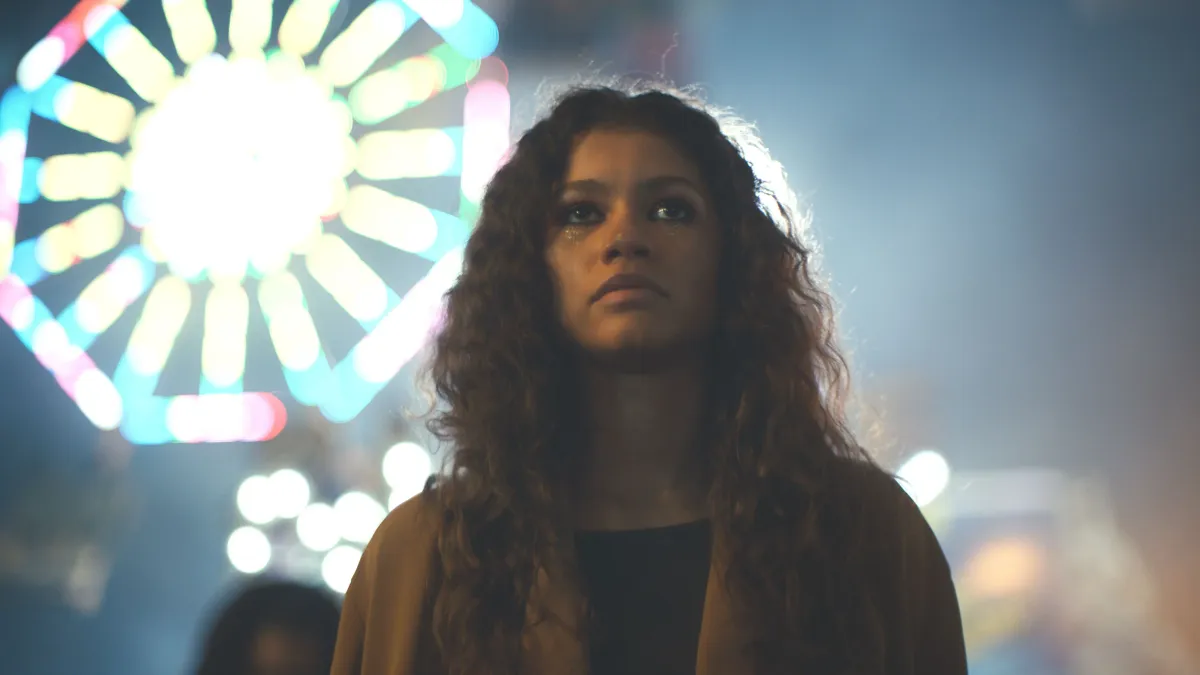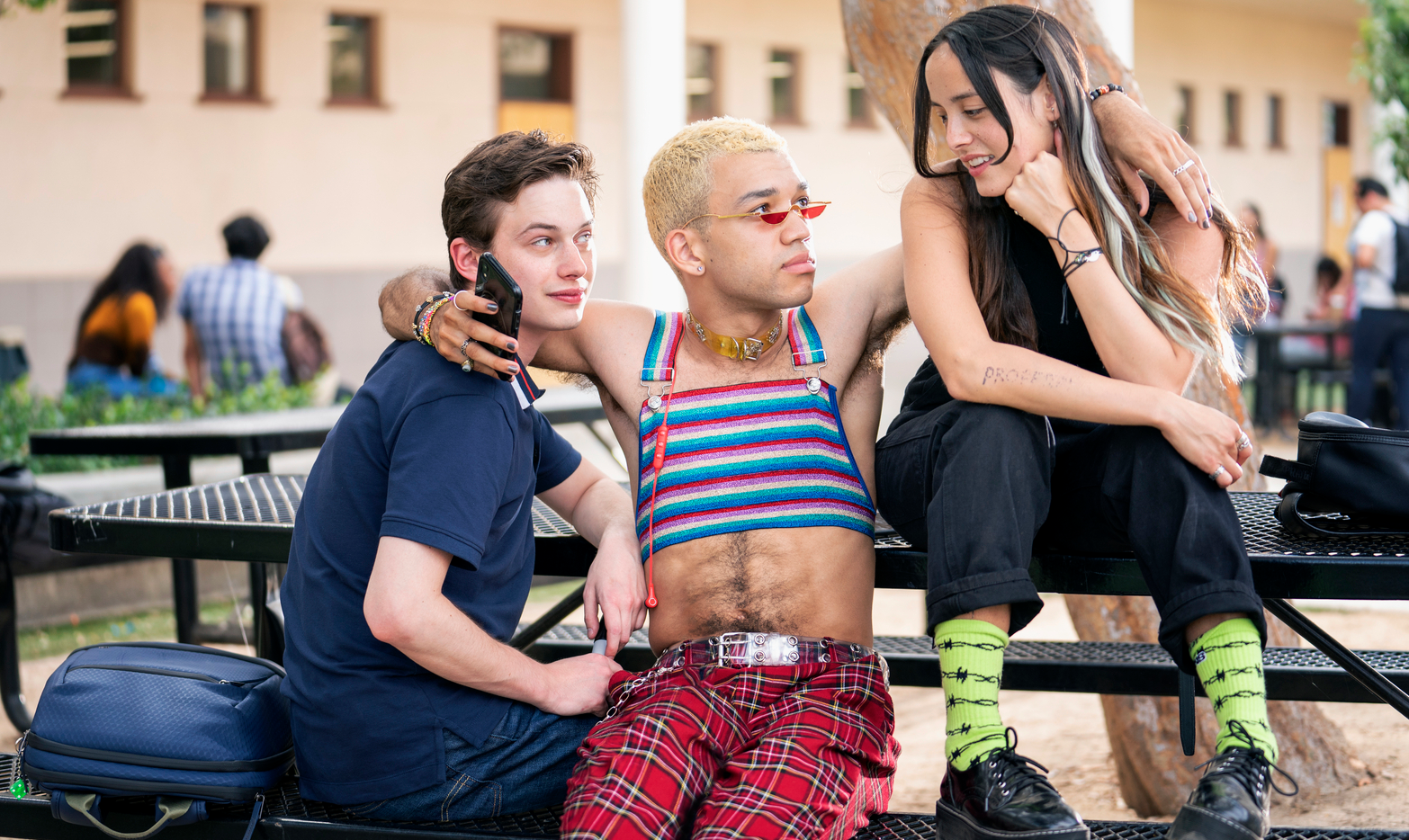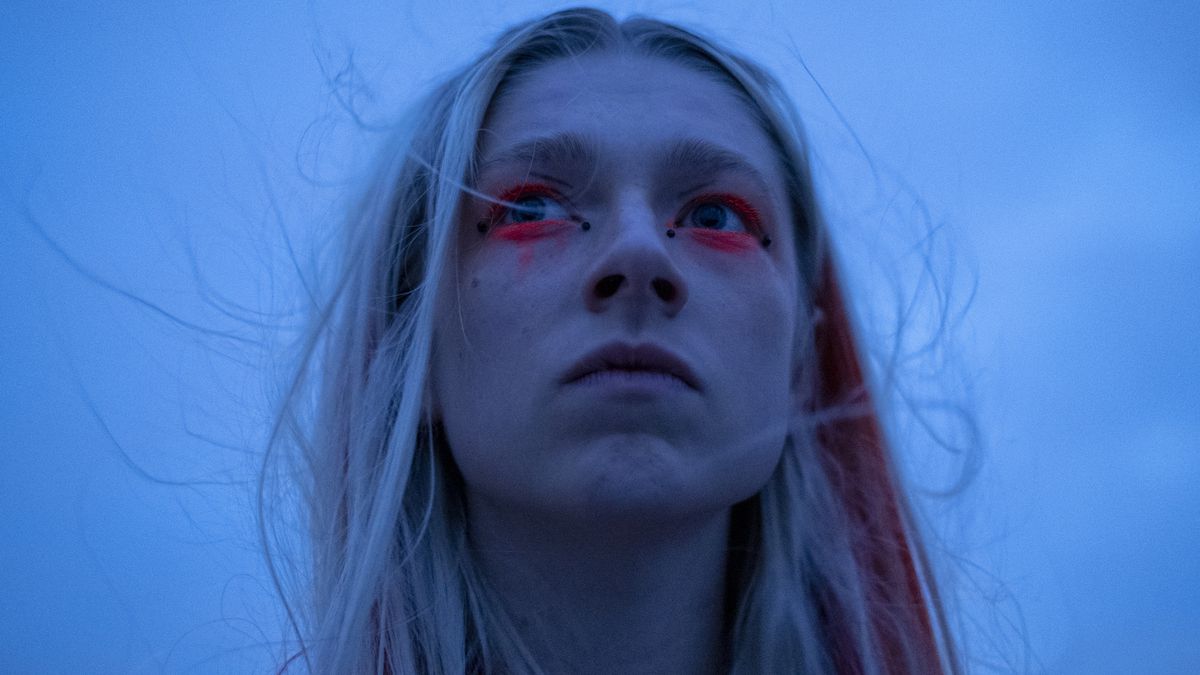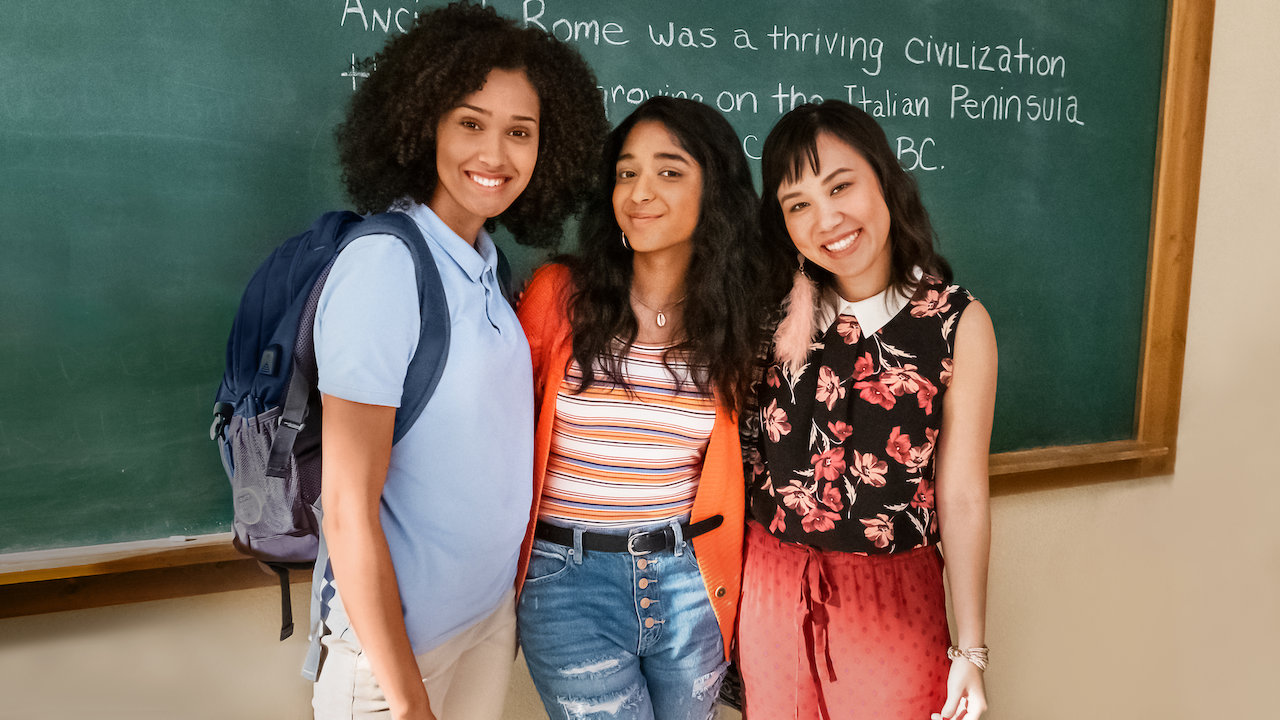What's the matter with teen TV shows today?
Too many shows try to make sweeping generalizations about Gen-Z. But Netflix's Never Have I Ever gets it right.

(Welcome to the Wednesday newsletter! Each week, I’m publishing a new pop culture essay from a freelancer. Remember: Your subscription fee helps me pay these freelancers for their efforts! This week: Hazem Fahmy takes on the falseness in this recent wave of teen TV.)
The teen shows of today have a problem: They increasingly seem uninterested in being about the teens onscreen. They either gesture to some essential sense of Gen-Z-ness, or they force a shallow aura of relatability vis-à-vis attempts at “diversity” while still very much being about rich kids.
As has been the case with every new generation of young people, Zoomers are currently being subjected to an endless stream of essentializations and reductive assessments. But these analyses ignore the fact that age, when stripped of other critical identity markers like race and class, says virtually nothing in and of itself about a given person’s beliefs or actions. Being born within a certain range of years has no bearing on one’s material circumstances, their access (or lack thereof) to institutional resources, or their relationship to contemporary popular culture and technology.
Attempts to present a comprehensive narrative that encapsulates an entire generation ultimately normalize a specific kind of upper-class suburban adolescence as the definitive representation of teenagers today. The high schools of today’s shows look more diverse, sure, but they overwhelmingly remain sites of massive, unexamined economic privilege.
We can see the problems with these generational generalizations most obviously in HBO Max’s new Generation and HBO’s Emmy-winning Euphoria. But not all hope is lost. Other teen shows of the moment, like Netflix’s Never Have I Ever, are content to just let their teens be teens.
But let’s start with the problem children.
Generation and Euphoria aim for diversity but fall into the same class trappings as always

Father and daughter duo Daniel and Zelda Barnz’s Generation, sometimes styled Genera+ion, debuted on HBO Max in March to several positive reviews that praised it for its “inclusion.” But there has been little to no discussion regarding just what the show’s “diverse” characters are being included in, let alone how that inclusion deploys their “diverse” identities in service of the show’s generally flat and relatively homogenous view of youth today.
Like many sweeping coming-of-age series that attempt to be a statement on an entire, well, generation, rather than a self-contained ensemble series, Generation takes place in an upper-class Southern California community, specifically in Anaheim. Beyond the teens who live within this privileged enclave, the show has absolutely no interest in exploring the lives of youth in any other social or material circumstance. We don’t leave the suburbs, let alone the state.
There is nothing inherently wrong with a story that chooses to stick to a particular time, place and set of characters. I prefer that stories prioritize the development of their settings over the shallow and rapid inclusion of different periods or locales. The problem with a show like Generation, however, is that it attempts to use its ultra-specific setting as a universal one that represents a fundamental experience of contemporary American adolescence. The audience isn’t mean to simply identify with these characters, but to view them as emblems of an entire age group and moment. But the problem isn’t that Generation and other shows like it (like, say, Euphoria) don’t “accurately” represent Gen-Z, but that they seem to think that such a feat of representation is even possible.
When it comes to Euphoria, critics like Emily VanDerWerff have pointed out that much of the series’ depiction of teens seems driven more by a 1990s-style paranoia over the social ills young people are exposed to today. This curtails the agency of the characters, making them into ideas and warnings, more than fleshed-out people. Euphoria is often described as a shocking show, but that’s too broad of a statement that doesn’t veer enough into the specifics of what might elicit such a reaction. I don’t have an issue with a depiction of “shocking” teenage behavior; I do when it feels engineered to be a survey of social taboos that teenagers experience today.
Fans of the show have often pushed back against this line of critique, describing it as a puritanical discomfort with taboo material. These things happen, the defense goes, so our media shouldn’t be afraid of tackling them. But how incisive can a show really be when it attempts to tackle so much? Euphoria was always at its best when examining the main thing showrunner Sam Levinson seemed actually most interested in exploring: the specific hardship of addiction when one is still coming of age.
But Euphoria also tries to cram in underage pornography, statutory rape, predatory relationships, the weaponizing of sexual assault, revenge porn, catfishing, and… the horrifying list goes on. In so doing, the show fails to give any of these incredibly heavy topics the weight they deserve. The show’s massive ensemble of teens having problems ends up being a distraction from the show’s two most compelling and developed characters: Zendaya’s Rue and Hunter Schaefer’s Jules. Perhaps that’s why the series has never been better than in its two special episodes: 2020’s “Trouble Don’t Always Last,” which focuses on Rue, and 2021’s “F**k Anyone Who’s Not a Sea Blob,” which focuses on Jules.
Both Generation and especially Euphoria have proved relatable to at least some teens. Vice, for instance, asked young viewers about their thoughts on Euphoria, and the answers skewed favorably, though the degree to which the show can, or can’t, be considered “realistic” is often up for debate.
At the end of the day, no single person can definitively say whether or not a show speaks to the experiences of an entire generation because nothing can. The issue isn’t realism, or the lack thereof, as some misguided commentators would have you believe. The degree to which Euphoria is “accurate,” or not, barely interests me. What I am interested in, however, is the way in which the show’s portrayal of a specific community of teenagers is implicitly presented as a kind of definitive statement on Gen-Z.
What's wrong with teen shows that are just about being teens?

Generation, to its credit, actually lets teens just hang out and be teens. The second half of the first season, especially, is chock-full of endearing, awkward, and dynamic scenes with mostly phenomenal chemistry among the cast members. The show is at its best in its simplest moments, like when school is cancelled because of wildfires, and Justin Smith’s Chester picks up his friends to have an irresponsible day of hanging out outside. These scenes seem like the ones the showrunners genuinely wanted to make the most. They’re where the show feels natural and easygoing.
Where it doesn’t feel natural and easygoing is in virtually every moment in which the show attempts to remind you that it is indeed, very diverse, much progressive, and all kinds of 2021. Generation’s “diversity” succeeds in that it diversifies the hegemonic upper-class suburban American experience that we’ve all become accustomed to seeing on television. It inserts people of color and queer people into a fantasy that has previously been dominated almost exclusively by cishet white people, so that the presumed liberal viewer can breathe a sigh of relief, and go on ignoring how little meaningful difference actually exists between such content and what they’ve already been consuming for most of their life.
The characters’ political “commentary” is exhausting. The teens constantly yell “that’s problematic!” like they exist in a rightwing meme. One character screams “reparations!” at a service worker after she snatches paper cups from the fast-food register. Everyone “hates” capitalism because it’s the chic thing to do.
As with Euphoria, the issue isn’t a lack of “realism” so much as it is a particular framing that lacks transparency. Generation transforms real political demands into punchlines about clueless, entitled, and often narcissistic teens who mostly seem to be rebelling against their richer, more conservative parents. Moreover, the butt of the joke isn’t so much the teens’ shallow and underdeveloped understanding of politics as it is a cynical understanding of those positions.
When Lukita Maxwell’s Delilah excessively berates a friend’s parents for merely mentioning Harry Potter, the comedy of the scene doesn’t actually punch up at the real-world transphobia of J.K. Rowling, but punches down on young people like her who are prone to calling out the awfulness of popular figures.
For a show selling itself as a kind of celebration of Gen-Z progressivism, such instances in Generation betray an inherently reactionary view of contemporary cultural politics. The kids’ constant misunderstanding and misapplication of social justice language becomes rooted in a general sense of “teenageness” and Gen-Z “identity,” as opposed to the specific kind of adolescence these rich kids are able to enjoy.
What Netflix's Never Have I Ever gets right

But things don’t have to be this way. Mindy Kaling’s Never Have I Ever, whose second season debuts Thursday, is also a show about upper-class teens in Southern California suburbia. It has also sold itself on featuring a diverse cast and mines a lot of its humor from contemporary political language. It thrives, however, in its complete lack of interest in saying anything about the age-group to which its characters belong.
This is partially due to the fact that Maitreyi Ramakrishnan’s Devi is the undisputed star of the show, a focus that allows the story to be consistently particular. It doesn’t attempt to extrapolate Devi’s experiences and perspectives onto her generation. The story’s commitment to the ultra-specificity of her arc is clear from the very first lines of the entire show: “Hey, gods, its Devi Vishwakumar, your favorite Hindu girl in the San Fernando Valley.” Besides being an excellent introduction to Devi’s relationship with religion, this joke subtly signals to us to not take Devi as a representative of anything other than herself.
It would, of course, be unfair to compare these three shows without stating the obvious difference in each’s generic DNA. While all of them have some kind of mix of dramatic and comic elements, they do form a spectrum wherein Euphoria is the closest to a traditional drama, and Never Have I Ever to a comedy. Though I by no means think that comedy is an inherently more effective genre for coming-of-age narratives, I do think the awkwardness, ambivalence, and even excitement of adolescence can often be much harder to capture in more dramatic shows. The platonic chemistry between Devi and her two best friends, Fabiola (Lee Rodriguez) and Eleanor (Ramona Young), for instance, captures these contradictory feelings effortlessly. As much as their reactions and schemes are exaggerated for comedic effect, they land more truthfully than Euphoria’s rushed survey of adolescent malcontent.
Never Have I Ever’s comedy also knows where to punch. If anyone is mocked for being too “woke,” it’s the corny teacher who otherwise has no idea how to connect with his students. The act of representation, in general, is not treated here as some sacred thing that is in itself revolutionary. Devi’s struggles with her family, faith, and community are fleshed out and nuanced, rooted in a multi-faceted and well-developed character. Her fights with her mom are as much about her grief for her late father as they are about the distance diaspora has placed between them. Race and gender come up organically in her social life. She feels more like a person than most of either HBO show’s cast.
Mainstream media’s attempts to distill entire age groups into coherent stories is not new, nor is it surprising that we are now witnessing the integration of a corporate understanding of diversity into these generalized narratives. But teen shows are ultimately at their best when they are about the minutiae of growing up, the small moments of heartbreak and joy that come with coming of age.
Euphoria peaked with its special episodes for this reason, and Generation thrived in its quietest moments. But Never Have I Ever works best because it doesn’t pretend to be about anything but a girl in a very particular time and place trying to make sense of her world and where she wants to be in it. The best teen shows always are.
Episodes is published three times per week and edited by Emily VanDerWerff. Mondays feature her thoughts on assorted topics. Wednesdays offer pop culture thoughts from freelance writers. Fridays are TV recaps written by Emily. The Wednesday and Friday editions are only available to subscribers. Suggest topics for future installments via email or on Twitter. Read more of Emily's work at Vox.


